When we think about washing dishes, we don’t really put much thought into the soap we’re using. After all, the soap residue left on our dishes doesn’t affect us, right? Wrong.
Most conventional dishwashing liquids, soaps, and detergents aren’t just soap. They’re filled with toxic chemicals and substances that are harmful not only to your health, but the environment, too.
The residues left on your dishes get absorbed into the bloodstream the next time you put food on your plate, or liquids in your cup. These toxic chemicals are also absorbed through the skin on your hands when you wash dishes without any protection. This is why it is so important that you choose a safe and healthy all-natural dish soap.
8 Toxic Chemicals in Dish Soap
Some of the basic ingredients in dish soap include surfactants, preservatives, fragrance, colour, as well as active or inactive ingredients. Go grab your dish soap from the kitchen, and compare its ingredients to the ones below.
1. Cocamidopropyl Betaine (CAPB)
This “organic” compound derived from coconut oil is created by mixing raw coconut oil and dimethylaminopropylamine (can you pronounce that?). This creates an amphoteric surfactant that creates a thick lather. It is a popular cause for rosacea, eczema, skin irritation, and eye irritation (1). In 2004, CAPB was named the American Contact Dermatitis Society’s “Allergen of the Year.” Doesn’t seem like something I want to be around.
2. Propylene Glycol
This common ingredient found in just about anything created chemically (anti-freeze anyone?) is also found in dish soap, moisturizers, hand sanitizers, baby products, conditioners and shampoos. MSDS sheets warn to avoid skin contact, yet it remains in many dish soaps and cosmetics. It is linked to liver abnormalities, kidney damage, and can affect the nervous, endocrine and reproductive systems (2).
3. Polysorbate-20
Polysorbate, on its own, is a harmless sorbitol, which is a sugar alcohol. However, for cleaning products and personal care products, it is treated with ethylene oxide, creating what we know as polysorbate-20. Unfortunately, treatment with ethylene oxide can create the potentially dangerous by-product, 1,4-dioxane (a known animal carcinogen that readily penetrates the skin). It has also been linked with skin allergies (3).
4. Sodium Laureth Sulfate (SLES) and Sodium Lauryl Sulfate (SLS)
The most common ingredient in dish soap is SLS or SLES. They’re chemical surfactants used to cut through dirt and grease by creating an over-abundance of foam (hence, why your dish soap is so bubbly). Their manufacturing process produces the toxic by-product 1,4-dioxane. This chemical is considered a possible to likely human carcinogen by the International Agency for Research on Cancer, The U.S. Department of Health and Human Services and the Environmental Protection Agency (4).
Also, just a note – lots of natural dish soap companies claim that SLS is not harmful if it is derived from plants. To be clear: harmful chemicals are harmful regardless of whether they started out as an animal, vegetable, or mineral. SLS derived from coconut is not safe (which is what many companies use).
5. Sodium Polyacrylate
This chemical comes with some organ system toxicity (5) and will also pollute local water. Not only that, but it is highly toxic to aquatic life. When we use products, we must also consider everyone involved, not just the human species.
6. Methylchloroisothiazolinone and methylisothiazolinone
According to the Environmental Working Group (EWG) Skin Deep site, this preservative is associated with allergic reactions (like contact dermatitis) and lab studies suggest it may also be neurotoxic (6). This chemical is also extremely hazardous to aquatic life – so as soon as the chemicals go down the drain and into your local watershed, they can harm ecosystems.
7. Fragrance
Artificial fragrances can contain hundreds, even thousands of chemicals, including phthalates. Since manufacturers do not need to disclose the ingredients of the fragrances they use, we’re often kept in the dark about them. For the majority of people, fragrances are a major cause of allergic reactions. The EWG has done plenty of research into the “fragrance” umbrella term, and now we know that it causes short-term water pollution, as well as many different health problems (7).
8. Benzisothiazolinone
This chemical is a type of biocide linked to immune system toxicity, allergies and cancer (8). It is used on an industrial level as a means to kill fungus on roofs and buildings, as well as a preservative in paints and cleaning products. If you’re looking for a better way to kill fungus on your dishes, stick with tea tree oil, lavender, and thyme essential oils instead.
Natural Dish Soap Alternatives
If your current dish soap contains any of the above ingredients, I highly suggest switching to an all-natural alternative. I came across a company called Yaya Maria’s, and decided to give their dish soap a try.
Yaya Maria’s is made up of only six ingredients:
– Water
– Coconut oil
– Vegetable Glycerin
– Lavender Essential Oil
– Potash
– Castor Oil
None of the ingredients in Yaya Maria’s cause harm to the human body. They’re safe to use on your dishes, and will even naturally relax you while you clean them (thanks to the lavender!).
It takes a little getting used to, as we are so commonly used to soap that bubbles up. While Yaya Maria’s does suds up in the beginning, the bubbles quickly disintegrate and then the water is left looking white and cloudy. This isn’t a bad thing, it’s simply different than conventional soaps that utilize chemicals to make their product extra bubbly. In fact, Yaya Maria’s cuts grease even better than conventional dish soaps, and the lavender essential oil helps reduce bacteria build-up in your sponges and dish cloths (unlike conventional soaps, where bacteria growth is a lot more common).
I absolutely love Yaya Maria’s and would recommend the product to anyone looking to live a healthier, chemical-free life. I have partnered up with them and if you use the code livelovefruit at checkout, you will receive a 10% discount on your order! You can also peek their FREE eBook that outlines harmful chemicals in dish soap, and why they are so dangerous.
CLICK HERE TO ORDER YAYA MARIA’S (discount included in link).
Disclaimer: All views and opinions are my own. This particular product review was not sponsored or paid for in any way by the manufacturer. However, the manufacturer did give me the product for testing and review purposes


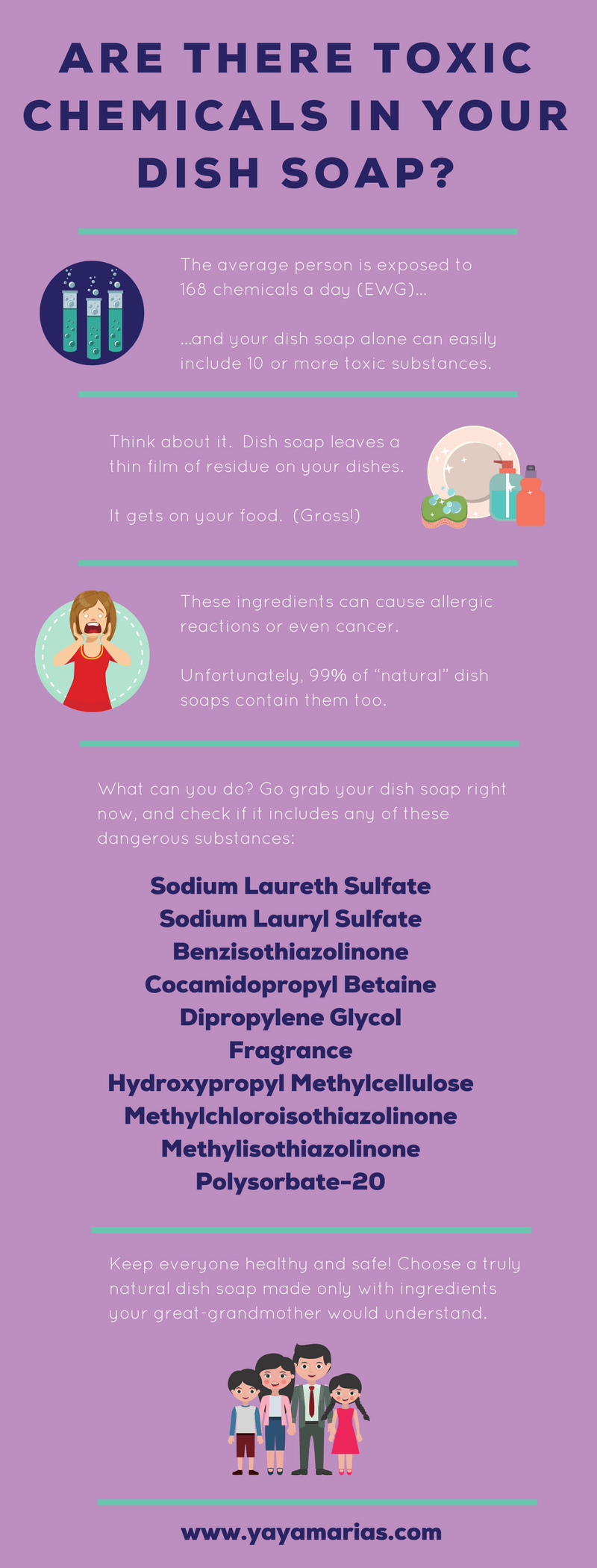
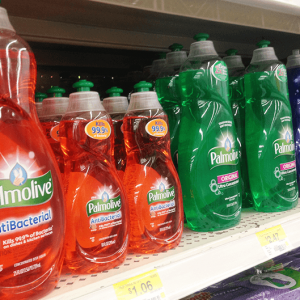
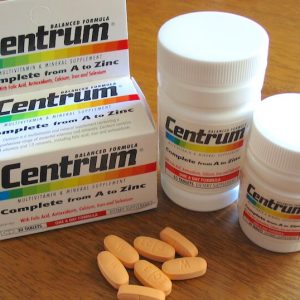
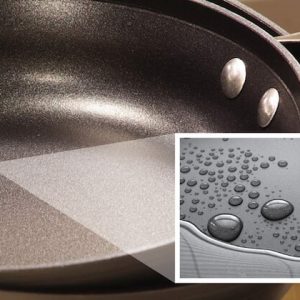
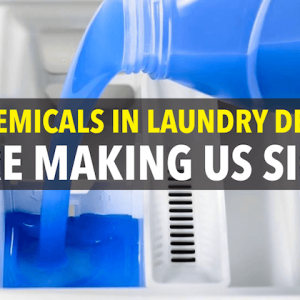

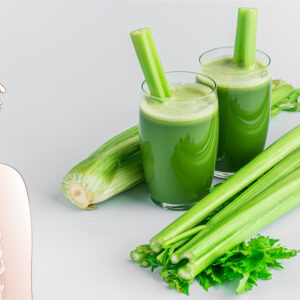
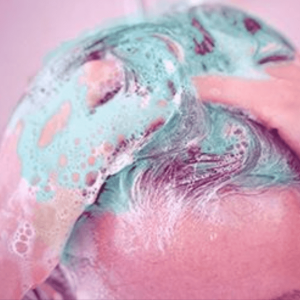
Thanks for the info. I can’t afford $7/bottle so I won’t be ordering your brand but I am at least looking for plant-based brands that are better than Dawn or Palmolive or the like.
Dr. Bronners is also great! 🙂